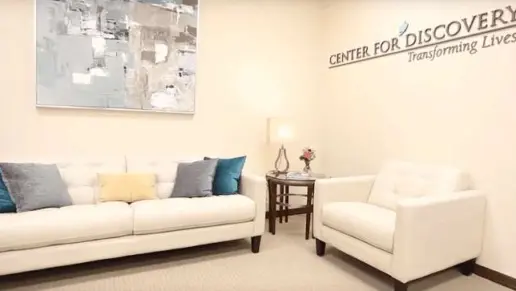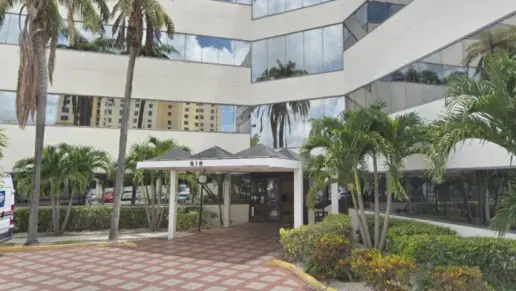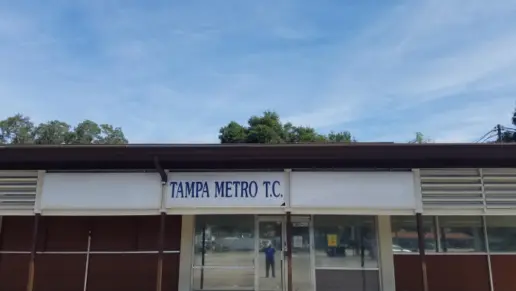This place changed my life! Even though it was not easy and there are rules! And the Accommodations are not the best! If you want help and to get off streets and drugs this is definitely the place for you! My life is better these days!!
About Broward Addiction Recovery Center (BARC)
BARC – Broward Addiction Recovery Center – Stephen R. Booher Center, located in Coral Springs, Florida, is an addiction treatment center overseen by the Broward County Human Services Department. They serve Broward county adults, aged 18 and older, providing treatment for substance abuse and co-occurring mental health disorders. Services include medically managed detoxification; individual, group, and family counseling; and case management services. Inpatient, residential and outpatient treatment options are available. BARC also has a residential perinatal addiction program for pregnant women and a residential program for women with children under the age of 8 years old. They are Joint Commission accredited. Payment for services is determined using a sliding scale fee structure that is based on income level and family size.
The BARC Triage and Detoxification Unit is a 50 bed detox center managed by an addiction doctor. Nursing staff monitors patients around the clock, and counseling is provided by mental health professionals. Medication assisted treatment (MAT) for opioid and alcohol use disorders uses FDA approved medications.
Residential treatment at BARC is provided in a 93 bed, dormitory style facility and generally lasts about 60 days. Medical staff, licensed counselors, mental health specialists and case managers provide treatment. Residential treatment takes place in two phases, with stabilization, addiction and relapse prevention education, and life skills training offered in the first phase. The second phase continues these strategies and introduces family involvement and 12 Step peer recovery support programming. Residential treatment also includes family centered educational programming, job skills training and vocational assistance.
Outpatient treatment at BARC includes a six to eight week intensive outpatient program that meets in group sessions three hours a day for three or more days each week. Individual sessions are included as needed. General outpatient treatment offers group sessions covering family issues, emotional regulation strategies, problem solving strategies and social skills training. General outpatient treatment lasts for approximately six months, based on individual needs.
As a psychotherapist, I am impressed with the quality of treatment offered at BARC, which is more comparable to that found at a private rehab than at a government subsidized rehab. Past clients have been especially pleased with the staff’s attentiveness and the amenities available, including the quality of the food.
Rehab Score
Other Forms of Payment
Medicaid is a state based program that helps lower-income individuals and families pay for healthcare. Medicaid covers addiction treatment so those enrolled can use their coverage to pay for rehab. When a program accepts Medicaid the client often pays very little or nothing out of their own pocket.
Self-pay involves paying for treatment out of your own pocket. You can use savings or credit, get a personal loan, or receive help from family and friends to fund your treatment. If you don't have insurance or your insurance plan doesn't cover a specific program, self-pay can help ensure you still get the care you need.
Sliding scale payments are based on a client's income and family size. The goal is to make treatment affordable to everyone. By taking these factors into account, addiction recovery care providers help ensure that your treatment does not become a financial burden to you or your family, eliminating one barrier to care.
Medicare is a federal program that provides health insurance for those 65 and older. It also serves people under 65 with chronic and disabling health challenges. To use Medicare for addiction treatment you need to find a program that accepts Medicare and is in network with your plan. Out of pocket costs and preauthorization requirements vary, so always check with your provider.
Private insurance refers to any kind of healthcare coverage that isn't from the state or federal government. This includes individual and family plans offered by an employer or purchased from the Insurance Marketplace. Every plan will have different requirements and out of pocket costs so be sure to get the full details before you start treatment.
Military members, veterans, and eligible dependents have access to specific insurance programs that help them get the care they need. TRICARE and VA insurance can help you access low cost or no cost addiction and mental health treatment. Programs that accept military insurance often have targeted treatment focused on the unique challenges military members, veterans, and their families face.
Addiction Treatments
Levels of Care
Treatments
The goal of treatment for alcoholism is abstinence. Those with poor social support, poor motivation, or psychiatric disorders tend to relapse within a few years of treatment. For these people, success is measured by longer periods of abstinence, reduced use of alcohol, better health, and improved social functioning. Recovery and Maintenance are usually based on 12 step programs and AA meetings.
Drug rehab in Florida provides quality treatment to help individuals overcome dependency related to a wide range of addictive substances. Programs address both the physical and mental aspects of addiction in order to help you make a full recovery.
Many of those suffering from addiction also suffer from mental or emotional illnesses like schizophrenia, bipolar disorder, depression, or anxiety disorders. Rehab and other substance abuse facilities treating those with a dual diagnosis or co-occurring disorder administer psychiatric treatment to address the person's mental health issue in addition to drug and alcohol rehabilitation.
Opioid rehabs specialize in supporting those recovering from opioid addiction. They treat those suffering from addiction to illegal opioids like heroin, as well as prescription drugs like oxycodone. These centers typically combine both physical as well as mental and emotional support to help stop addiction. Physical support often includes medical detox and subsequent medical support (including medication), and mental support includes in-depth therapy to address the underlying causes of addiction.
Substance rehabs focus on helping individuals recover from substance abuse, including alcohol and drug addiction (both illegal and prescription drugs). They often include the opportunity to engage in both individual as well as group therapy.
Programs


Clinical Services
Research clearly demonstrates that recovery is far more successful and sustainable when loved ones like family members participate in rehab and substance abuse treatment. Genetic factors may be at play when it comes to drug and alcohol addiction, as well as mental health issues. Family dynamics often play a critical role in addiction triggers, and if properly educated, family members can be a strong source of support when it comes to rehabilitation.
Group therapy is any therapeutic work that happens in a group (not one-on-one). There are a number of different group therapy modalities, including support groups, experiential therapy, psycho-education, and more. Group therapy involves treatment as well as processing interaction between group members.
In individual therapy, a patient meets one-on-one with a trained psychologist or counselor. Therapy is a pivotal part of effective substance abuse treatment, as it often covers root causes of addiction, including challenges faced by the patient in their social, family, and work/school life.
Life skills trainings involve all the skills a person must have in order to function successfully in the world. These include time management, career guidance, money management, and effective communication. Truly successful addiction recovery is based on the ability to not only live substance-free, but to thrive. Life skills teaches the practical necessities of functioning in society, which sets clients up for success in life, and therefore sobriety.
Recreational therapy (aka therapeutic recreation) uses creative and fun activities to help with addiction recovery. Recreational therapists lead patients in entertaining and engaging activities like sports or games; art (drawing, painting, sculpture); drama, music, and dance; and/or community outings (field trips) to improve patients' physical, social, and emotional well-being.
Amenities
-
Residential Setting
-
Private Setting
Accreditations

The Joint Commission, formerly known as JCAHO, is a nonprofit organization that accredits rehab organizations and programs. Founded in 1951, the Joint Commision's mission is to improve the quality of patient care and demonstrating the quality of patient care.
Joint Commission Accreditation: Yes
Accreditation Number: 598262
Contact Information
3275 NW 99th Way
Coral Springs, FL 33065


